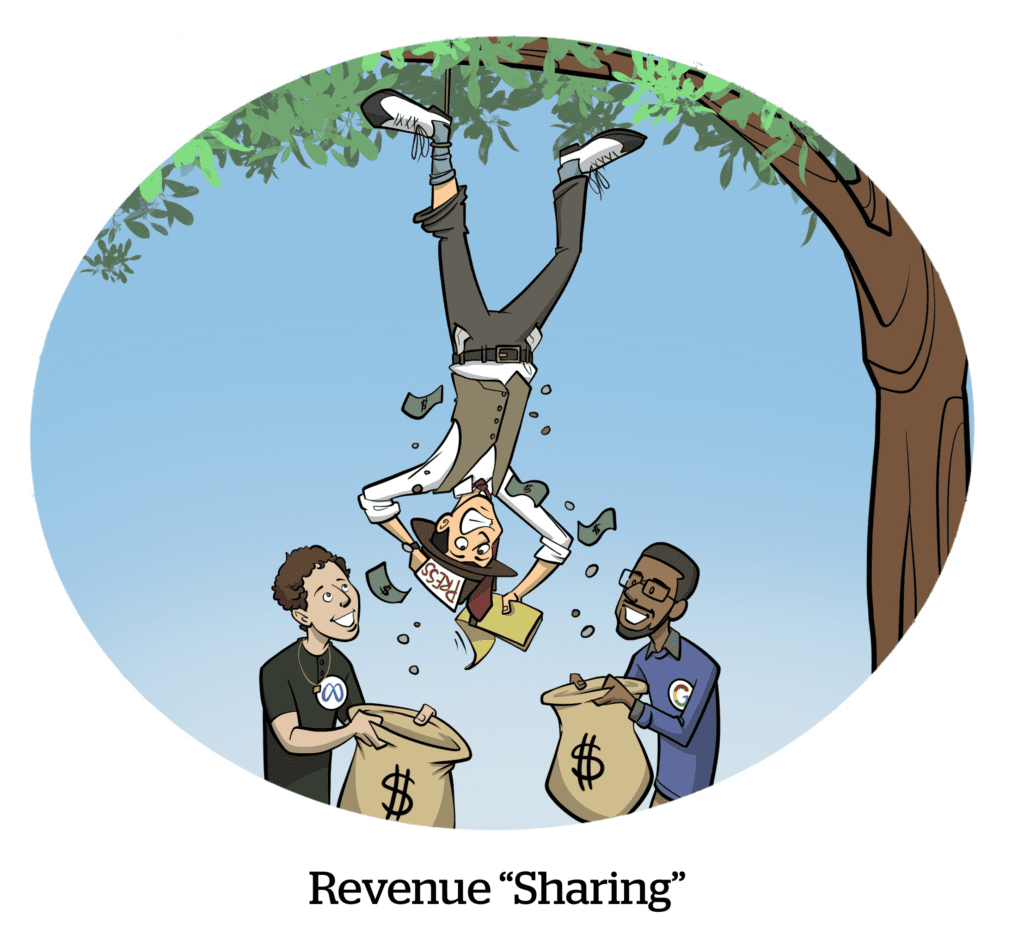Here’s today’s AdExchanger.com news round-up… Want it by email? Sign up here.
Dis-Affiliate
Google is tinkering with its search rankings again, this time to address well-known publishers with affiliate businesses, Search Engine Land reports.
Forbes was recently hit hard after being the target of a report by Lars Lofgren, chief growth officer of performance agency Stone Press, regarding Forbes Marketplace, a parasitic offshoot that had almost taken over the host and was manipulating Google’s algorithm.
Fortune also seems to have been penalized after a report regarding its affiliate business, Fortune Recommends. Meanwhile, AP Buyline, Time Stamped, Buy Side from WSJ and CNN Underscored have all dropped.
Glenn Gabe, an SEO consultant, documented the ranking changes – which he described as Google “picking off sites one by one.” Gabe heard back from Google Search industry liaison Danny Sullivan to confirm the changes: “Our systems aim to understand if a section of a site is independent or starkly different from the main content of the site.”
Some news publishers have earnest affiliate content. They commission humans, ostensibly with an expertise, to review or recommend things. It’s an appealing, sensible idea.
But some news domains have taken cynical or scammy approaches, and Google appears to have reset the lever for all publishers with unrelated affiliate subdomains.
A Sense Of Exploration
Sticking with Google, it’s got a new search ad product to prospect customers from low-traffic search terms, Adweek reports.
Search Bidding Exploration, as it’s called, has been in closed beta since September. It pushes budgets to search keywords that aren’t indicators someone is likely to convert, but still may be useful for reaching new audiences.
The kicker is that ROAS drops by around 10% with the Exploration product. But brands should be able to get more clicks from people who are likely to convert if and when the time comes.
Search Bidding Exploration is part of Google’s Smart Bidding suite of black-boxy AI-driven ad products. Performance Max was supposed to be able to work the whole customer funnel, but, as it turns out, the AI is way better at closing the deal with people already near a conversion.
Last year, when Google launched Demand Gen (a brand marketing and prospecting solution, as its name denotes), it was a concession of defeat that PMax doesn’t do both.
The challenge with AI-powered tools, as one buyer tells Adweek, is that they optimize “against the same pools.” Eventually, the buyer said, “You’ll hit a ceiling.”
Shop Around The ’Tok
TikTok Shop’s success may be driving renewed interest in US social commerce, Digiday reports.
As of February, TikTok Shop accounted for 68% of all product sales through social platforms, according to eMarketer. And TikTok Shop’s gross monthly sales topped $1 billion starting in July, according to The Information.
Over the past three months, brands that previously weren’t interested in social commerce have proactively reached out about running campaigns, says VaynerX’s Zubin Mowlavi. Meanwhile, brands that are active in the channel are starting to use their marketing and performance budgets for social commerce rather than their smaller experimental budgets, Mowlavi adds.
The rising tide for TikTok is also lifting other boats, namely Amazon and Pinterest. But the persistent possibility of a US TikTok ban is tempering the trend. And not all marketers are sold on social shopping, given other worrisome indicators.
For example, ad campaigns on Meta Shops yield a 20% click-through rate, but only 5% to 10% of purchases are actually happening within Meta’s ecosystem, says Empower Media’s Eric Olson. And in some cases, conversion rates and ROAS for Meta Shops campaigns are 80% lower than ads that send consumers to a brand’s site.
But Wait! There’s More!
Samsung TV Plus hit 88 million monthly active users. [release]
Netflix introduced a new video-sharing feature called “Moments.” [The Verge]
Election stress is having a noticeable impact on sales at some retailers. [Business Insider]
The majority of Americans (72%) believe that a brand endorses an influencer’s politics by working with them. [Ad Age]
The Washington Post lost more than 200,000 subscribers after owner Jeff Bezos blocked the editorial team’s endorsement of Vice President Kamala Harris for president. [NPR]
Microsoft says Google is conducting a shadow campaign in the EU to lobby regulators against its cloud computing business. [The Verge]
Redditors in popular tourist towns are trying to trick Google’s generative AI search so it stops recommending highly regarded restaurants. [Gizmodo]
Medium is being taken over by AI-generated slop. AI detection tools estimate more than 40% of recent posts were written by AI. [Wired]












